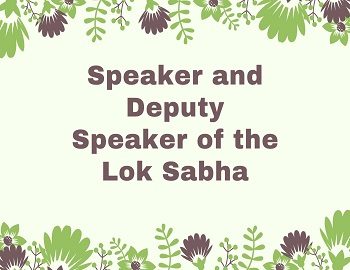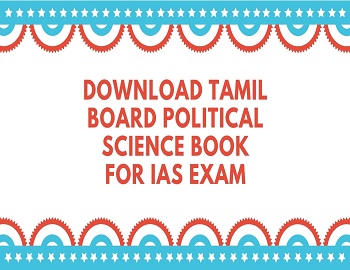Speaker and Deputy Speaker of the Lok Sabha:
The Speaker is the Presiding Officer of the Lok Sabha. He not only presides over its meeting but also controls its working. The Speaker and the Deputy Speaker of the Lok Sabha are elected by the members of the Lok Sabha amongst themselves. When the office of the Speaker falls vacant or when the Speaker is absent from any sitting of the House, the Deputy Speaker performs the duties of the Speaker. The Speaker and the Deputy Speaker remain in office so long as they are members of the House. The Speaker continues in his office, even after the Lok Sabha is dissolved till the newly elected Lok Sabha is constituted. The Speaker and the Deputy Speaker may be removed from their office by a resolution of the House after serving a 14-day notice on them. The Speaker does not vote in the first instance but exercises his casting vote in the case of a tie i.e. in the case of an equality of votes. He does not vote in the first instance to maintain the impartiality of his office but exercising his casting vote only to remove a deadlock. He is the final authority in interpreting the Rules of Procedure of the House and possesses the final power to maintain order within the house. He has the responsibility to uphold the dignity and privileges of the House. He draws the same salary as that of the Deputy Chairman of Rajya Sabha.
Under the Constitution, the Speaker enjoys a special position-
- He certifies Money Bill and it is final (Article 110).
- Presides over joint sittings which are summoned to resolve a disagreement between the two houses.
- Decides on granting recognition to the Leader of the Opposition in the Lok Sabha.
- Permission of Speaker is compulsory on the question of bringing Adjournment Motion.
- Following the 52nd Constitution Amendment 1985, the Speaker is vested with the power relating to the disqualification of the member of the Lok Sabha on grounds of defection.









Comments (No)